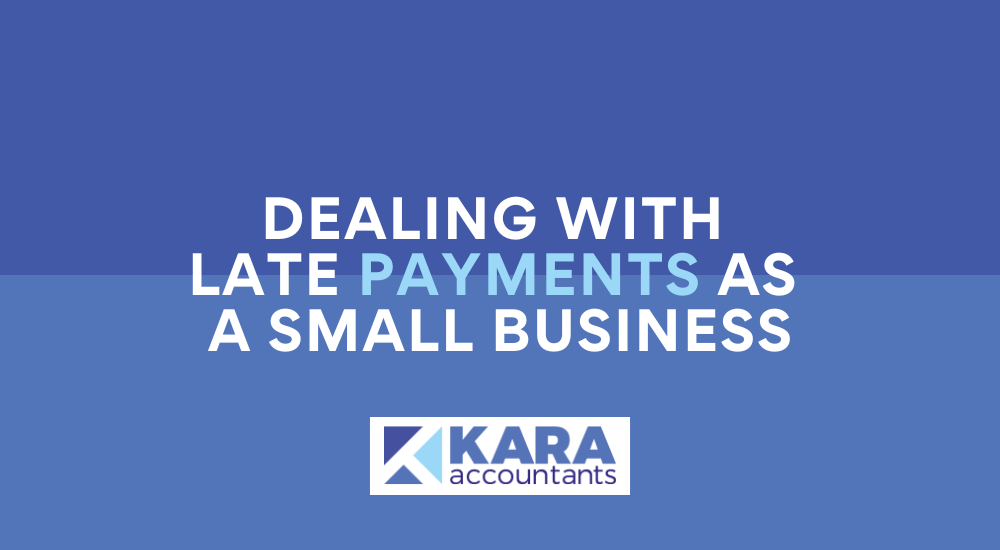
Dealing with Late Payments as a Small Business
As a small business owner, managing cash flow is crucial to maintaining your operations and fostering growth. One of the most significant challenges you may face is dealing with late payments from clients or customers. Late payments can disrupt your financial stability, hinder your ability to pay bills and cause unnecessary stress. In this blog post, we’ll explore effective strategies to handle late payments and ensure your business remains financially healthy.
1. Set Clear Payment Terms
From the Start: Establish clear payment terms from the outset of any business relationship. Include these terms in your contracts, invoices, and any other relevant documentation. Specify the due date, accepted payment methods, and any penalties for late payments. By setting clear expectations, you reduce the likelihood of confusion and disputes later on.
2. Invoice Promptly and Accurately
Efficiency is Key: Send invoices as soon as work is completed or products are delivered. Ensure that your invoices are accurate and detailed, including the payment due date and any late fees that may apply. Use invoicing software to streamline this process and reduce errors.
3. Offer Incentives for Early Payments
Encourage Timeliness: Consider offering discounts or incentives for clients who pay early. For example, a 2% discount if payment is made within ten days. This can motivate clients to prioritise your invoice over others and help you receive payments more quickly.
4. Implement a Follow-Up System
Stay Proactive: Develop a system for following up on unpaid invoices. Send reminders a few days before the due date, and follow up immediately if a payment is late. Be polite but firm in your communications. Sometimes, a gentle nudge is all that’s needed to prompt a payment.
5. Build Strong Relationships
Personal Touch: Cultivate strong relationships with your clients. When you have a good relationship, clients are more likely to prioritise your payments. Regular communication can also help you identify and address any issues that might be causing delays.
6. Consider Payment Plans
Flexibility: If a client is struggling to pay, consider offering a payment plan. This allows the client to pay off the debt in smaller, manageable installments. While this means you won’t get the full payment immediately, it ensures that you eventually receive the money and maintains a positive client relationship.
7. Utilise Late Payment Fees
Enforce Terms: If clients consistently pay late, enforce the late payment fees outlined in your terms. While this won’t always guarantee immediate payment, it can discourage clients from delaying payments in the future. Be sure to communicate any additional charges clearly and consistently.
8. Offer Multiple Payment Options
Ease of Payment: Provide clients with various payment options, such as credit cards, bank transfers, and online payment systems. The easier it is for clients to pay, the less likely they are to delay. Consider investing in payment processing software to facilitate this.
9. Seek Professional Help
Collections Assistance: If you have a client who consistently fails to pay, consider seeking help from a collections agency or legal professional. While this should be a last resort due to the potential impact on client relationships, it may be necessary to recover outstanding debts.
10. Review and Adjust Policies
Continuous Improvement: Regularly review your payment policies and procedures. Assess what works and what doesn’t, and be willing to make adjustments. Learning from past experiences can help you develop more effective strategies for managing late payments in the future.
Late payments can be a significant hurdle for small businesses, but with proactive strategies and clear communication, you can minimise their impact. Remember, managing late payments effectively not only supports your cash flow but also helps maintain the financial health and stability of your business.

This Post Has 0 Comments